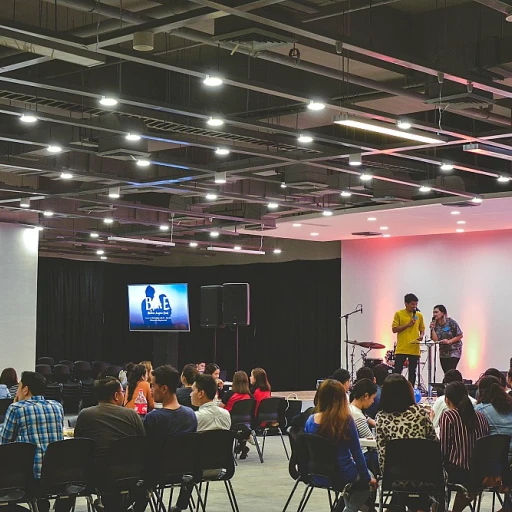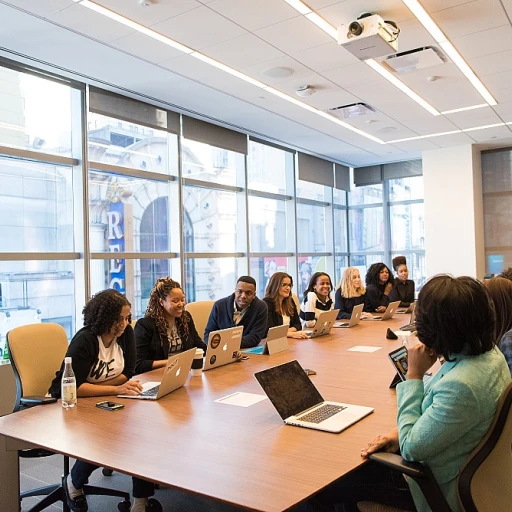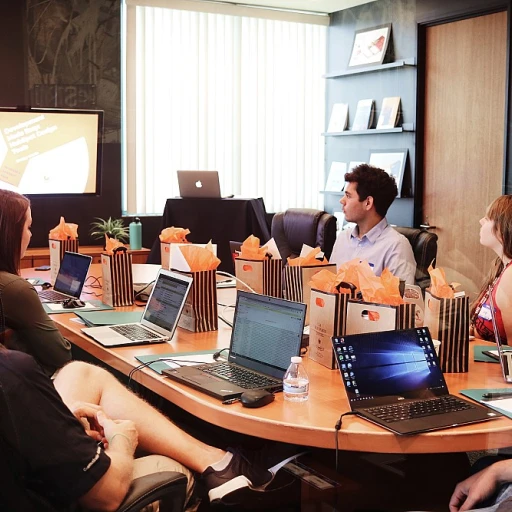
Common acceptable reasons to call out of work
Recognizing Acceptable Reasons for Missing Work
When preparing for HR job interviews, understanding what counts as a valid reason to call out of work is essential. Employers know that life happens, and sometimes missing work is unavoidable. However, not all excuses are viewed equally. HR professionals look for reasonable, honest explanations that show you respect your responsibilities and the workplace.
- Personal illness or health day: If you are genuinely sick or need a mental health day, it is acceptable to call in. Protecting your health—and that of your coworkers—matters. Common examples include the flu, food poisoning, or a sudden migraine. Mental health is increasingly recognized as a valid reason for taking time off.
- Family emergencies: Unexpected situations involving a family member, such as a medical emergency or urgent care need, are generally considered good reasons. HR understands that family comes first in these moments.
- Jury duty or legal obligations: Being called for jury duty or needing to attend a court date is a legitimate reason to be absent. Employers are required by law to accommodate this.
- Bereavement: The loss of a close family member or friend is a recognized reason for taking leave. Most companies have policies for bereavement leave.
- Short notice emergencies: Sometimes, emergencies happen with little warning. If you communicate quickly and clearly, HR will usually understand.
Less acceptable excuses, like wanting a day off for leisure without prior notice, or vague explanations such as "I just don’t feel like working today," can raise concerns. HR professionals are trained to distinguish between genuine reasons and questionable excuses. They may ask follow-up questions to assess the situation, as discussed in later sections.
It’s important to be honest and professional when explaining your absence. If you’re unsure how to document or communicate your reason, using an incident log can help you keep track of important details for future reference. This can be especially useful if you need to provide context during an interview or when discussing your work history.
Remember, your approach to calling out of work says a lot about your work life balance and your respect for your employer. In the next section, we’ll look at how HR evaluates your explanations and what they consider when reviewing your reasons for missing work.
How HR evaluates your explanation during interviews
What HR Looks for When You Explain Absences
During HR job interviews, your explanation for missing work—whether it’s a sick day, family emergency, or another valid reason—gets close attention. HR professionals are trained to evaluate not just what you say, but how you say it. They want to understand your approach to work-life balance, your sense of responsibility, and your honesty about personal or health-related absences.
- Consistency: HR checks if your reasons for calling out of work align with your previous work history. For example, frequent excuses like food poisoning or last-minute emergencies may raise questions.
- Clarity: Clear, straightforward explanations—such as needing a mental health day or caring for a family member—are generally seen as more credible than vague or overly detailed stories.
- Professionalism: How you communicate your absence matters. Using an appropriate email template or following company protocol shows respect for your employer and your boss.
- Judgment: HR evaluates if you know when it’s appropriate to call work or take sick leave, and whether you use good judgment in balancing personal needs with work responsibilities.
Employers also consider if your reasons call for short notice or if you give enough time for your boss to adjust. For example, jury duty or a sudden family emergency are usually seen as valid reasons, while repeated vague excuses work against you.
HR will often probe further if your explanation seems like a generic excuse or if you appear to avoid responsibility. They may ask follow-up questions to see if your story holds up. This is why balancing honesty and professionalism is key when discussing absences. For more insight into how direct hire processes influence these evaluations, you can read about what direct hire means in HR job interviews.
Ultimately, HR is looking for candidates who handle time off with integrity and communicate openly about their needs—whether it’s for health, family, or other personal reasons. Being prepared to discuss your approach to calling out of work will help you make a strong impression in your next interview.
Red flags HR notices in your answers
What HR Professionals Notice in Your Absence Explanations
When you discuss reasons for missing work during an HR job interview, your answers reveal more than just the facts. HR professionals are trained to pick up on subtle cues that may signal potential issues with reliability, professionalism, or work-life balance. Here are some key red flags they watch for:- Vague or inconsistent stories: If your explanation for calling out of work lacks detail or changes throughout the conversation, it can raise doubts about your honesty. For example, saying you had a "personal emergency" without clarifying if it was a family emergency, a health day, or another valid reason may seem evasive.
- Frequent or patterned absences: Mentioning that you often call in sick on Mondays or after holidays can make an employer question your commitment. Patterns like these may suggest you use sick leave as an excuse for extra time off rather than for genuine health or family needs.
- Blaming others or the workplace: If you blame your boss, coworkers, or the work environment for your absences, it may indicate a lack of accountability. HR values candidates who take responsibility for their actions and communicate proactively when they need to call out of work.
- Overly casual attitude: Treating absences as no big deal or joking about calling in with excuses like food poisoning or mental health days without context can come across as unprofessional. Employers want to see that you respect the impact of missing work on your team and the organization.
- Unconvincing or outdated excuses: Using outdated or questionable excuses for missing work, such as "I just didn’t feel like working today," or giving reasons that don’t align with current workplace norms (like not mentioning mental health as a valid reason) can be a red flag.
Balancing honesty and professionalism when discussing absences
Finding the Right Balance When Explaining Absences
When discussing reasons for missing work, it's important to strike a balance between honesty and professionalism. HR professionals understand that everyone occasionally needs a sick day, has a family emergency, or faces a personal health issue. However, how you communicate these reasons during an interview can influence their perception of your reliability and judgment. Being too vague or offering generic excuses like "I just didn’t feel like coming in" can raise concerns. On the other hand, oversharing personal details about your health or family member situations might make the conversation uncomfortable or seem unprofessional. The key is to be truthful without giving more information than necessary.- Be clear and concise about your reason for missing work, such as a valid health day, mental health need, or family emergency.
- Avoid making excuses that sound rehearsed or insincere, like food poisoning every month or frequent last-minute calls.
- Show that you respect your employer’s time by explaining how you communicated your absence, whether by call, email template, or following the company’s sick leave policy.
- Emphasize your commitment to your work life and how you make up for lost time or ensure your responsibilities are covered.
Examples of strong responses to interview questions about absences
Demonstrating Responsibility When Discussing Absences
When you’re asked about missing work or calling out, your answer should show that you understand the impact of your absence on your team and employer. HR professionals look for candidates who balance honesty and professionalism, especially when explaining why they took a sick day, needed time for a family emergency, or requested a mental health day. Here are examples of strong responses that reflect good judgment and responsibility:- Health-related absence: “I believe in maintaining open communication with my boss. When I was unwell with food poisoning, I promptly called work and followed the company’s sick leave policy. I also ensured my responsibilities were covered so the team wasn’t left short-handed.”
- Family emergency: “A family member needed urgent care, so I notified my employer as soon as possible and provided updates. I made sure to return to work as quickly as I could and caught up on any missed tasks.”
- Mental health day: “I recognize the importance of mental health for long-term productivity. On rare occasions, I’ve taken a personal day to recharge, always giving as much notice as possible and ensuring my work was up to date.”
- Jury duty: “When called for jury duty, I informed my supervisor immediately and submitted the required documentation. I coordinated with my team to minimize disruption during my absence.”
Key Elements of a Strong Response
A good answer to questions about calling out of work should include:- Clear communication with your boss or employer
- Respect for company policies on sick leave or personal time
- Efforts to minimize the impact on your team or workflow
- Honesty about your reasons call, without oversharing personal details
- Demonstrating that you don’t make excuses work or call out on short notice unless truly necessary
Sample Email Template for Notifying Absence
If you’re asked how you communicate an absence, referencing a professional email template can help:Subject: Absence Notification – [Your Name] Dear [Supervisor], I am writing to inform you that I am unable to come to work today due to [valid reason, e.g., illness, family emergency]. I have notified my team and ensured urgent tasks are covered. Please let me know if you need further information. Thank you for your understanding. Best regards, [Your Name]By providing clear, responsible examples and showing you value both your work and your well-being, you demonstrate to HR that you can handle absences with maturity and professionalism.
What to avoid saying about calling out of work
What Not to Say When Discussing Absences
When you’re in an HR job interview and the topic of calling out of work comes up, your answers matter. There are some things you should avoid saying to maintain your credibility and professionalism. Here’s what to keep in mind:- Don’t use vague or generic excuses. Saying things like “I just didn’t feel like working today” or “I needed a break” without context can make you seem unreliable. HR wants to hear valid reasons, such as a family emergency, a health day, or jury duty.
- Avoid blaming others. Placing responsibility on your boss, coworkers, or family member for your absence can raise red flags. Instead, focus on your own actions and decisions.
- Don’t overshare personal details. While honesty is important, sharing too much about your mental health or family issues can make the conversation uncomfortable. Keep explanations concise and relevant to your work life.
- Never joke about making up excuses. Even if you’re trying to lighten the mood, joking about fake excuses for missing work or calling in sick can damage trust with a potential employer.
- Avoid last-minute justifications. If you mention calling work at short notice without a valid reason, it may suggest poor planning. Emergencies happen, but repeated short notice absences can be a concern.
- Don’t say you used the same excuse multiple times. Repeatedly calling out for the same reason, like food poisoning or sick leave, can make your story less believable.
- Steer clear of negative comments about your current or previous employer. Criticizing your boss or workplace when explaining why you needed time off can reflect poorly on your attitude.
Tips for Professional Communication
- Frame your reasons call in a way that shows responsibility and respect for your employer’s needs.
- If you need to call work, use a clear and direct email template or phone call, stating your valid reason for missing work today.
- Emphasize your commitment to making up for lost time and ensuring your work is covered.













